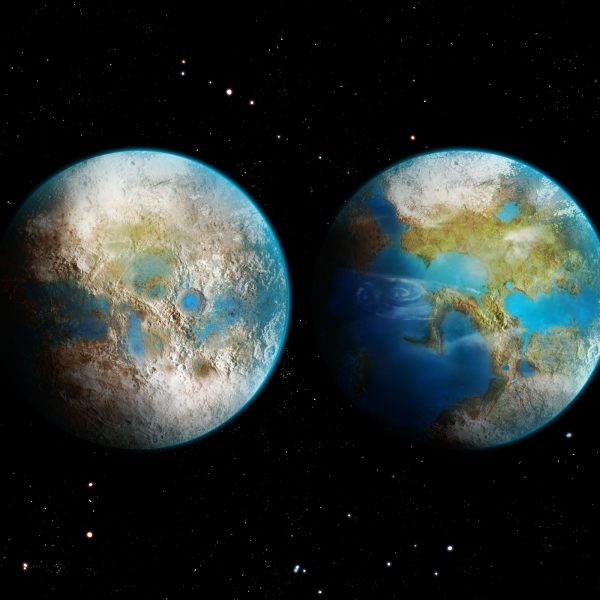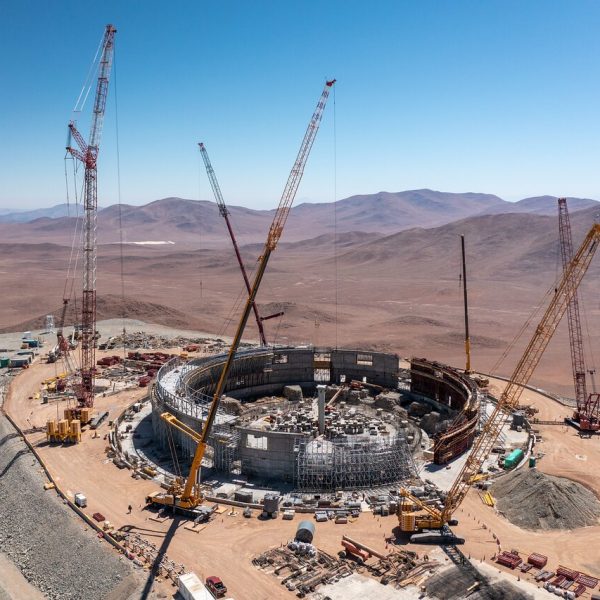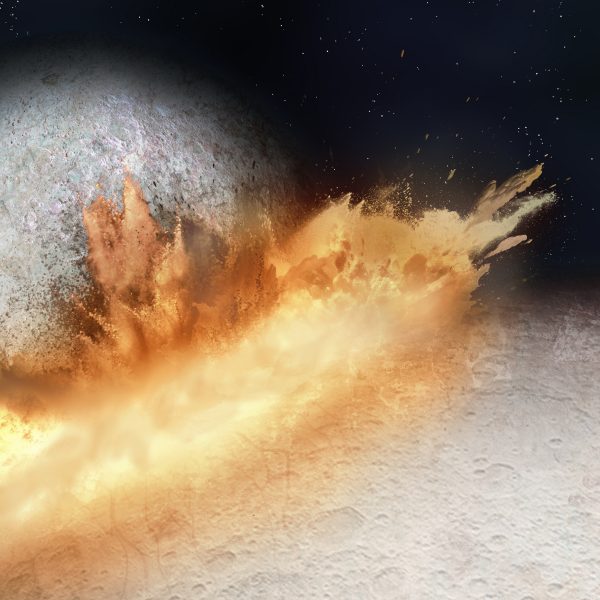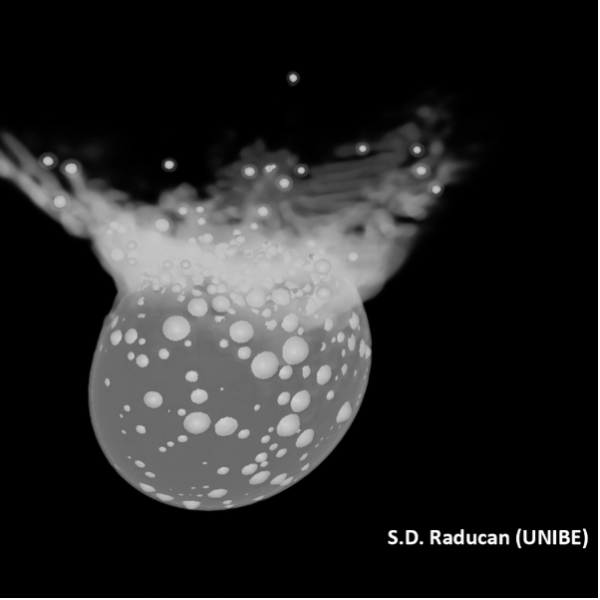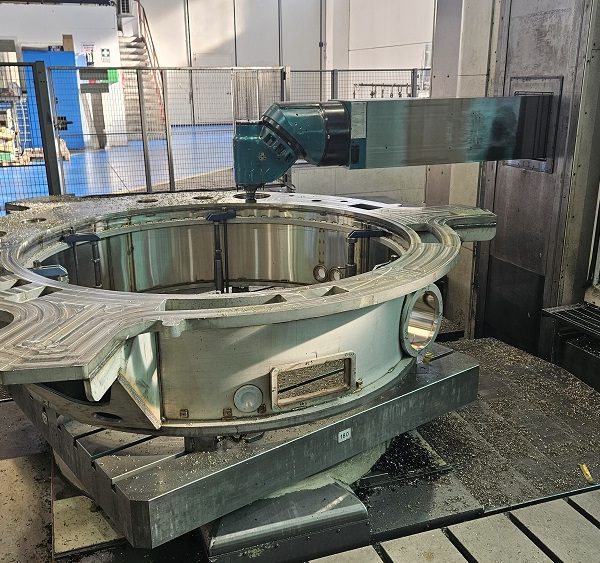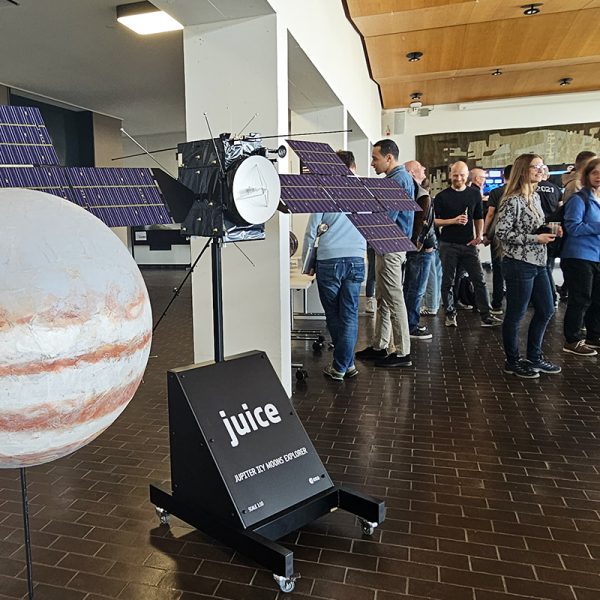Author Archive
Telltale greenhouse gases could signal alien activity
Known for their detrimental effect on Earth, greenhouse gases could be beneficial for alien civilizations afar to terraform their worlds, and an opportunity for us to spot them. An international team of scientists including Dr. Daniel Angerhausen from ETH Zurich and member of the National Centre of Competence (NCCR) PlanetS, calculated that current technology would […]
Continue ReadingANDES, the spectrograph in a quest for life in the Universe
The European Southern Observatory (ESO) is endorsing a new spectrograph for its future giant telescope. Switzerland is contributing thanks to its expertise in exoplanets and in high-precision instruments. ESO has started the design and construction of the ArmazoNes high Dispersion Echelle Spectrograph (ANDES) with an international consortium involving the University of Geneva and the University […]
Continue ReadingHow Pluto got its heart
The mystery of how Pluto got a giant heart-shaped feature on its surface has finally been solved by an international team of astrophysicists led by the University of Bern and members of the National Center of Competence in Research (NCCR) PlanetS. The team is the first to successfully reproduce the unusual shape with numerical simulations, […]
Continue ReadingSIPS logo call for ideas
Thank you for your interest in proposing an idea for the SIPS logo. Here are a few guidelines on what the logo design must feature or not, and a few “rules” for this call. Logo guidelines The logo must feature the SIPS acronym. You must submit two drawings of the logo, with a version […]
Continue ReadingJuice mission movie screening – Bern get-together.
The Europlanet Society is organising a screening of Maarten Roos-Serote’s Film on the Juice Mission, on Wednesday 20th of March 2024, at 6PM CET. The screening will be followed by a Q&A Session with some members of the Juice team who participated in the mission including Juice’s Project scientist Olivier Witasse. If enough members of […]
Continue ReadingImpact of the DART space probe could have deformed an asteroid
Thanks to simulations with a software system developed at the University of Bern by NCCR PlanetS members, an international team under Bernese leadership has provided important insights into the impact of NASA’s DART space probe on the asteroid Dimorphos: it is very likely that not just a crater was created, but the entire asteroid was […]
Continue ReadingUpdate on Instrumentation in PlanetS – February 2024
Discover the latest instrumental developments across the NCCR PlanetS! METIS METIS is taking shape! After 6 years of design work, the Mid-Infrared ELT Imager and Spectrograph (METIS) built started, as the goal is for this instrument to be installed at ESO’s ELT in 2028. Many components and parts are currently in manufacturing since the project underwent […]
Continue ReadingFantasy Basel 2024 – Call for volunteers
Dear PlanetS members and associates, Once again, PlanetS will return to Fantasy Basel – the Swiss Comic-con – and we need you! This year will be special as it will mark the tenth anniversary of the festival! The organiser have seen big and the event size will increase by 20% to reach 90 000 m2! The […]
Continue ReadingEditorial
Dear readers, The year 2023 has been filled with exciting developments and events for NCCR PlanetS. This included important scientific output, events with the public, spacecraft launches, and critical missions extensions. At the end of the decade, the exploration of the Jupiter system will be the focus of two flagship class missions – something I […]
Continue ReadingRetrospective on 2023 public events
The year 2023 has been rich in events for the NCCR PlanetS. It was mainly the occasion to meet with the public, but also with specific groups, schools and students in first place. Here is a short recap of the year events. US Ambassador visit United States Ambassador Scott C. Miller visited the University of […]
Continue Reading
